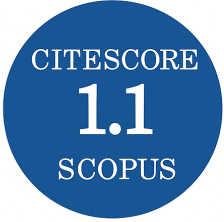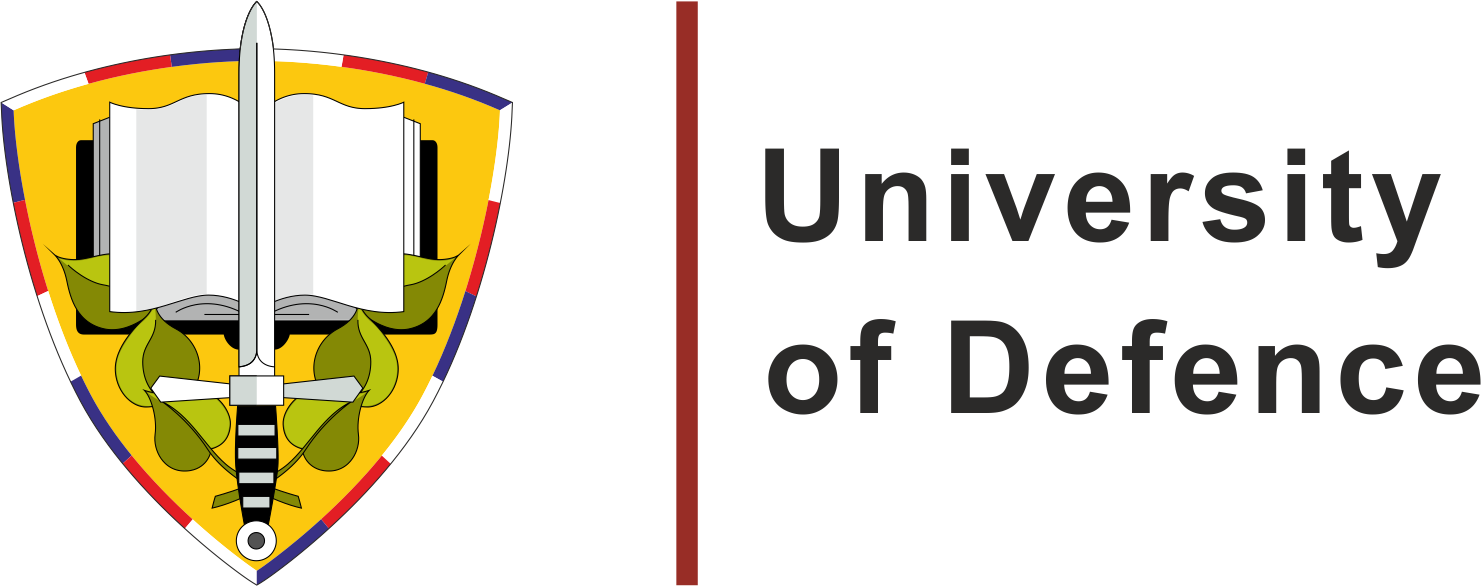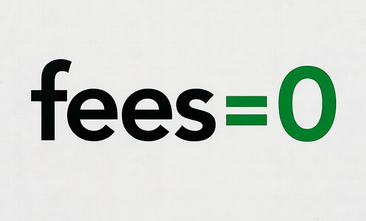Concrete Targets with Heterogeneities under Impact Loading
DOI:
https://doi.org/10.3849/aimt.01216Keywords:
concrete, heterogeneity, impact, noise, Smoothed Particle HydrodynamicsAbstract
The main aim of the paper is to present an elegant procedure for introducing heterogeneity to simplified computational models. A computational model is considered here to be theoretically any numerical model that includes material with structural strength. Heterogeneity then means the randomness in material parameters which allows a simplified model to behave like the comprehensively described structure of a material. The whole procedure is explained using the example of a material model of concrete in the form of a concrete block (target) which is exposed to high-speed impact loading. Even though the described procedure for the introduction of heterogeneity to computational models can be applied during the use of practically all numerical methods, the Smoothed Particle Hydrodynamics (SPH) method will be used due to the type of loading involved. The creation of the presented procedure was prompted by the constantly increasing number of input parameters used with material models. Elementary material models with a minimum of inputs can be used when applying the procedure. The end of the paper deals with the improvement in use that enables heterogeneity (i.e. randomness of material structure) to be created in such a way that a simplified model reflects real material structure as much as possible and not only the variations of mathematical functions.
References
KALA, Z. Sensitivity and Reliability Analyses of Lateral-Torsional Buckling Resistance of Steel Beams. Archives of Civil and Mechanical Engineering, 2015, vol. 15, no. 4, p. 1098-1107. https://doi.org/10.1016/j.acme.2015.03.007.
KALA, Z. Influence of Partial Safety Factors on Design Reliability of Steel Structures – Probability and Fuzzy Probability Assessments. Journal of Civil Engineering and Management, 2007, vol. 13, no. 4, p. 291-296. https://doi.org/10.1080/13923730.2007.9636449.
KALA, Z., KALA, J., ŠKALOUD, M. and TEPLÝ, B. Sensitivity Analysis of the Effect of Initial Imperfections on the (I) Ultimate Load and (II) Fatigue Behaviour of Steel Plate Girders. Journal of Civil Engineering and Management, 2005, vol. 11, no. 2, p. 99-107. https://doi.org/10.1080/13923730.2005.9636338.
KRÁLIK, J. Safety of Nuclear Power Plants under the Aircraft Attack. Applied Mechanics and Materials, 2014, vol. 617, p. 76-80. https://doi.org/10.4028/www.scientific.net/AMM.617.76.
KRÁLIK, J. and BARAN, M. Numerical Analysis of the Exterior Explosion Effects on the Buildings with Barriers. Applied Mechanics and Materials, 2013, vol. 390, p. 230-234. https://doi.org/10.4028/www.scientific.net/AMM.390.230.
KRÁLIK, J. Optimal Design of NPP Containment Protection Against Fuel Container Drop. Advanced Materials Research, 2013, vol. 688, p. 213-221. https://doi.org/10.4028/www.scientific.net/AMR.688.213.
KRÁL, P., KALA, J. and HRADIL, P. Verification of the Elasto-Plastic Behavior of Nonlinear Concrete Material Models, International Journal of Mechanics, 2016, vol. 10, p. 175-181. ISSN 1998-4448.
KALA, J. and HUŠEK, M. Useful Material Models of Concrete when High Speed Penetrating Fragments are Involved. In Proceedings of the 9th International Conference on Continuum Mechanics, 2015, vol. 15, p. 182-185. ISBN 978-1-61804-346-7.
HOKEŠ, F., KALA, J. and KRŇÁVEK O. Nonlinear Numerical Simulation of a Fracture Test with Use of Optimization for Identification of Material Parameters. International Journal of Mechanics, 2016, vol. 10, p. 159-166. ISSN 1998-4448.
KALA, J., HRADIL, P. and BAJER, M. Reinforced Concrete Wall under Shear Load – Experimental and Nonlinear Simulation. International Journal of Mechanics, 2015, vol. 9, p. 206-212. ISSN 1998-4448.
KALA, J. and HUŠEK, M. High Speed Loading of Concrete Constructions with Transformation of Eroded Mass into the SPH. International Journal of Mechanics, 2016, vol. 10, p. 145-150. ISSN 1998-4448.
KALA, J. and HUŠEK, M. Improved Element Erosion Function for Concrete-Like Materials with the SPH Method. Shock and Vibration, 2016, vol. 2016, p. 1-13. https://doi.org/10.1155/2016/4593749.
LIU, G.R. and LIU, M.B. Smoothed Particle Hydrodynamics: A Meshfree Particle Method, Singapore: World Scientific, 2003.
BENZ, W. Smoothed Particle Hydrodynamics: A Review. NATO Workshop, Les, Arcs, France; 1989.
HUŠEK, M., KALA, J., KRÁL, P. and HOKEŠ, F. Effect of the Support Domain Size in SPH Fracture Simulations. International Journal of Mechanics, 2016, vol. 10, p. 396-402. ISSN 1998-4448.
HUŠEK, M., HOKEŠ, F., KALA, J. and KRÁL, P. Inclusion of Randomness into SPH Simulations. WSEAS Transactions on Heat and Mass Transfer, 2017, vol. 12, p. 1-10. ISSN 1790-5044.
Livermore Software Technology Corporation (LSTC). LS-DYNA Theory Manual. Livermore: LSTC, 2016.
MURRAY, Y.D. User’s Manual for LS-DYNA Concrete Material Model 159. FHWA-HRT-05-062, Colorado Springs: Volpe National Transportation Systems Center, 2007, 89 p.
MURRAY, Y.D. ABU-ODEH, A.Y. and BLIGH, R.P. Evaluation of concrete material model 159. FHWA-HRT-05-063, Colorado Springs: Texas Transportation Institute, 2006. 206 p.
HUŠEK, M., KALA, J., KRÁL, P. and HOKEŠ, F. Using Noise to Generate the Material Structure of Concrete [in print]. In 15th International Conference of Numerical Analysis and Applied Mathematics, AIP Conference Proceedings, 2017, Rhodes, Greece, ISSN 0094-243X.
HUŠEK, M., KALA, J., HOKEŠ, F. and KRÁL, P. Conversion of Fractal Fields into Heterogeneities inside SPH Simulations [in print]. Procedia Engineering.
Downloads
Published
License
Copyright (c) 2018 Advances in Military Technology

This work is licensed under a Creative Commons Attribution-NonCommercial 4.0 International License.
Authors who publish with this journal agree to the following terms:
1. Authors retain copyright and grant the journal right of first publication with the work simultaneously licensed under a Creative Commons Attribution License that allows others to share the work with an acknowledgement of the work's authorship and initial publication in this journal.
2. Authors are able to enter into separate, additional contractual arrangements for the non-exclusive distribution of the journal's published version of the work (e.g., post it to an institutional repository or publish it in a book), with an acknowledgement of its initial publication in this journal.
3. Authors are permitted and encouraged to post their work online (e.g., in institutional repositories or on their website) prior to and during the submission process, as it can lead to productive exchanges, as well as earlier and greater citation of published work.
Users can use, reuse and build upon the material published in the journal for any purpose, even commercially.






